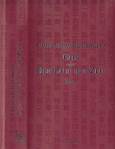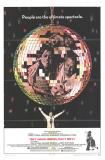Here We Are Again: Neue Alben von Ray Davies, Procol Harum, Deep Purple, Blondie und Corky Siegel
Dieser April ist ein großer Monat der Rockmusik!
Procol Harum – Novum (2017)
April 21, 2017
Fifty years after “Whiter Shade of Pale” introduced the concept of progressive rock, Procol Harum roll on, even with singer and pianist Gary Brooker as the only remaining original member.
Novum is their first new studio album in 14 years. Their last, 2003’s The Well’s on Fire, marked the end of the decades-long writing partnership between Brooker and lyricist Keith Reid. Organist Matthew Fisher and drummer Mark Brzezicki left shortly thereafter. Brooker still had guitarist Geoff Whitehorn and bassist Matt Pegg. They recruited organist Josh Phillips and drummer Greg Dunn. This version has been together for a decade.
Novum is a worthy 50th anniversary offering (though it’s not, as Brooker claims, Procol’s finest). This is the sound of a working band, not a tired reunion project. Brooker enlisted lyricist Pete Brown — known for his work with Cream and Graham Bond — and in an unusual move, brought the entire band into the songwriting process. What’s on offer here is the most rocking sound Procol Harum have delivered since Broken Barricades. There is only one overtly “classical” moment here, and it’s a send up — there’s a direct quote from Pachelbel’s Canon as a brief intro to the wonderful “Sunday Morning.” Some truly perverse lyric moments are expertly crafted into well-composed songs (would we expect anything less?). Opener “I Told on You” is a forceful prog rocker about professional jealousy, bitterness, and retribution. Its bridge and chorus are classic Brooker (think Home and Grand Hotel). “Last Chance Motel” is a strange and ironic take on the murder ballad that recalls the musical structure of early Elton John and Bernie Taupin tunes. It’s among the many vehicles here for Brooker’s voice, which remains as resonant and expressive as ever — there’s the hint of graininess in it, but his power remains undiminished by time. There are also some atypical, straight-on political swipes at hyper-capitalism, too, as on the bluesy “Soldier” and the meld of mean rock and Baroque pop in “Businessman.” “Don’t Get Caught” commences as a ballad with Brooker’s trademark nearly sepulchral singing, but becomes an anthem offering sage advice for guilt-free living atop blazing guitars and swelling strings. One might hear traces of Queen’s extended sense of vocal harmony in the rowdy chorus of the loopy “Neighbor,” but Brian May himself would admit that Queen snagged it from Procol Harum in the first place. “Can’t Say That” is an angry number and it rocks hard: Brooker’s signature piano style runs up hard against Whitehorn’s electric blues guitar vamps (think the Doors’ “Roadhouse Blues”) with a killer Pegg bassline. “The Only One” offers Brooker at his most confessional and melancholy, as he builds himself up and lets himself glide down the poignant lyric.
Novum is far better than anyone had any right to expect: It’s energetic, hungry, and swaggering. That said, it retains the trademark class and musical sophistication that makes Procol Harum iconic. (Quelle nicht wiedergefunden; vgl. auch Gary Brooker of Procol Harum Discusses First New Album in 14 Years - Billboard 4/20/2017)
+ Carl Wiser (SongFacts): Did you write the song "Sunday Morning" on Novum?
Pete Brown: Yes....
View on YouTube
Ray Davies - Americana (2017)
April 19, 2017
Americana was written, conceived, and arranged, by Davies, and co-produced with Guy Massey and John Jackson. The album is an autobiographical work, chronicling the inextricable role America has played in Davies’ life. From his earliest days touring the U.S. with the Kinks and subsequent blacklisting by the American Musicians Union, to his years playing stadiums and eventually settling in New York and New Orleans for a time, America has served as both muse and tempest to Davies.
No matter where he dwells, Davies remains an outsider, and that alienation unites Americana’s jumble of eras and places. On “Poetry,” he kneels in gratitude at the local KFC for the abundance that corporations bestow upon us. This is Davies in Dylan mode, hyperbolic but as dazzling with prosaic details as his student Jarvis Cocker. And unlike his previous post-Kinks cohorts, the Jayhawks steer clear of Nashville gloss while conjuring the appropriate C&W-tinged folk-rock fare. Keyboardist Karen Grotberg even duets with Davies on “Message from the Road,” evoking the tumbleweed kitsch of Nancy Sinatra and Lee Hazelwood while still pulling heartstrings.
Preceded by a quote from the book about his New Orleans neighbor, the late Alex Chilton, “Rock ‘N’ Roll Cowboys” provides the other poignant highlight. It’s a eulogy for rock’s rebels as well the music itself that’s delivered as a bittersweet bluegrass waltz, and it extends a metaphor of the formerly outlaw genre as a vanquished frontier. “Your time’s passed, now everyone asks for your version of history,” he mournfully croons. “Do you live in a dream, or do you live in reality?” He poses the question without answering it himself; there’s no need. (Pitchfork April 18 2017)
View on YouTube
Deep Purple - inFinite (2017)
7. April 2017

Je öfter ich das höre (und ansehe: tolles Video!), desto besser wird es
:
View on YouTube
Blondie - Long Time
Official video for "Long Time" from the upcoming album "Pollinator" out 5/5/17
View on YouTube

The Interview: Debbie Harry on sex, exhibitionism and searching for her birth mother (The Sunday Times, April 23 2017)
Corky Siegel’s Chamber Blues – Different Voices (2017)
View on YouTube
I was unaware of Corky Siegel’s Chamber Blues projects until now, though I went to college near Chicago and we often played the discs and saw the Siegel-Schwall Band perform live. A brief history: In 1973 the Siegel-Schwall Band released Three Pieces for Blues Band and Symphony Orchestra on the classical Deutsche Grammophon label. Two principals emerged from the project: jazz trombonist and composer William Russo and famed conductor Seiji Ozawa, who had been a long-time fan of the Siegel-Schwall Band. These two, mostly Ozawa, encouraged harmonicist Siegel to move in this direction, resulting in the first Chamber Blues ensemble recording on Alligator in 1994. Two other recordings followed and this is the fourth. So much for the history lesson—let’s get to the music. Google can take care of the rest.
First, you have to admire the concept that lends itself to cute little phrases like “Muddy meets Mozart” or “A bluesman and a classical string quartet walk into a bar.” Yet, this project goes beyond even the seemingly polar opposites of blues and classical, as Siegel invited blues legend Sam Lay, Grammy-winning jazz saxophonist Ernie Watts, Indian table master Sandeep Das, and R&B Singer Marcy Levey (who sings her hit “Lay Down Sally” composed with Eric Clapton), indie singer-songwriter Matthew Santos, and Chicago’s folk trio, Song of the Never Wrong. Not only do we have blues and classical music but jazz, world, gospel, R&B, and smatterings of folk herein – hence the title. The breadth and layers of this project are so stunning that I can’t recall hearing anything like this.
The first cut, “Missing Persons Blues – Op.26” features Ernie Watts and is a mash-up of blues, classical and jazz. “Time Will Tell Overture –Op, 25” features the table of Sandeep Das. Siegel takes the lead vocal on several tracks but is more than willing to share the spotlight with his guests. Santos takes the lead vocal on “One” and again on his own composition “Shadows in a Shoe Box.” Sons of the Never Wrong deliver innovatively on “I’ll Fly Away” with Deb Lader adding sparking mandolin: and Sam Lay takes his turn as well on the next piece. Siegel describes it, “”Italian Shuffle’ is based on the Chicago Blues style shuffle but you would swear it comes from Tuscany, not Chicago. And you can tell we surprised the heck out of blues legend Sam Lay, who responds by singing the classic ‘Flip, Flop and Fly.’ If there is a theme that has followed me from my first gig at Pepper’s and through this project it is this joy of diversity and togetherness that has enriched and shaped my life. The culmination of all this is reflected in the song ‘One,’ where we look out at the world and see we are all intimately connected.”
The packaging and liner notes are exquisitely detailed with lyrics provided. One little capsule that caught my attention was Siegel’s nod to these four major influencers: Maestro Seiji Ozawa, William Russo, Howlin’ Wolf, and Muddy Waters. There are some select dates, mostly in the Great Lakes states, where you can hear this unit perform with some of the special guests. Unless you’ve heard Siegel and Chamber Blues before, you really do have to hear this to believe it.
Jim Hynes, 2017 Elmore Magazine.
Die GBlogSuche nach »Procol Harum« hat 5 Resultate geliefert; - die Suche nach »Ray Davies« hat 35 Resultate und die Suche nach »Blondie« hat 13 Resultate geliefert.
Procol Harum – Novum (2017)
April 21, 2017
Fifty years after “Whiter Shade of Pale” introduced the concept of progressive rock, Procol Harum roll on, even with singer and pianist Gary Brooker as the only remaining original member.
Novum is their first new studio album in 14 years. Their last, 2003’s The Well’s on Fire, marked the end of the decades-long writing partnership between Brooker and lyricist Keith Reid. Organist Matthew Fisher and drummer Mark Brzezicki left shortly thereafter. Brooker still had guitarist Geoff Whitehorn and bassist Matt Pegg. They recruited organist Josh Phillips and drummer Greg Dunn. This version has been together for a decade.
Novum is a worthy 50th anniversary offering (though it’s not, as Brooker claims, Procol’s finest). This is the sound of a working band, not a tired reunion project. Brooker enlisted lyricist Pete Brown — known for his work with Cream and Graham Bond — and in an unusual move, brought the entire band into the songwriting process. What’s on offer here is the most rocking sound Procol Harum have delivered since Broken Barricades. There is only one overtly “classical” moment here, and it’s a send up — there’s a direct quote from Pachelbel’s Canon as a brief intro to the wonderful “Sunday Morning.” Some truly perverse lyric moments are expertly crafted into well-composed songs (would we expect anything less?). Opener “I Told on You” is a forceful prog rocker about professional jealousy, bitterness, and retribution. Its bridge and chorus are classic Brooker (think Home and Grand Hotel). “Last Chance Motel” is a strange and ironic take on the murder ballad that recalls the musical structure of early Elton John and Bernie Taupin tunes. It’s among the many vehicles here for Brooker’s voice, which remains as resonant and expressive as ever — there’s the hint of graininess in it, but his power remains undiminished by time. There are also some atypical, straight-on political swipes at hyper-capitalism, too, as on the bluesy “Soldier” and the meld of mean rock and Baroque pop in “Businessman.” “Don’t Get Caught” commences as a ballad with Brooker’s trademark nearly sepulchral singing, but becomes an anthem offering sage advice for guilt-free living atop blazing guitars and swelling strings. One might hear traces of Queen’s extended sense of vocal harmony in the rowdy chorus of the loopy “Neighbor,” but Brian May himself would admit that Queen snagged it from Procol Harum in the first place. “Can’t Say That” is an angry number and it rocks hard: Brooker’s signature piano style runs up hard against Whitehorn’s electric blues guitar vamps (think the Doors’ “Roadhouse Blues”) with a killer Pegg bassline. “The Only One” offers Brooker at his most confessional and melancholy, as he builds himself up and lets himself glide down the poignant lyric.
Novum is far better than anyone had any right to expect: It’s energetic, hungry, and swaggering. That said, it retains the trademark class and musical sophistication that makes Procol Harum iconic. (Quelle nicht wiedergefunden; vgl. auch Gary Brooker of Procol Harum Discusses First New Album in 14 Years - Billboard 4/20/2017)
+ Carl Wiser (SongFacts): Did you write the song "Sunday Morning" on Novum?
Pete Brown: Yes....
View on YouTube
Ray Davies - Americana (2017)
April 19, 2017
Americana was written, conceived, and arranged, by Davies, and co-produced with Guy Massey and John Jackson. The album is an autobiographical work, chronicling the inextricable role America has played in Davies’ life. From his earliest days touring the U.S. with the Kinks and subsequent blacklisting by the American Musicians Union, to his years playing stadiums and eventually settling in New York and New Orleans for a time, America has served as both muse and tempest to Davies.
No matter where he dwells, Davies remains an outsider, and that alienation unites Americana’s jumble of eras and places. On “Poetry,” he kneels in gratitude at the local KFC for the abundance that corporations bestow upon us. This is Davies in Dylan mode, hyperbolic but as dazzling with prosaic details as his student Jarvis Cocker. And unlike his previous post-Kinks cohorts, the Jayhawks steer clear of Nashville gloss while conjuring the appropriate C&W-tinged folk-rock fare. Keyboardist Karen Grotberg even duets with Davies on “Message from the Road,” evoking the tumbleweed kitsch of Nancy Sinatra and Lee Hazelwood while still pulling heartstrings.
Preceded by a quote from the book about his New Orleans neighbor, the late Alex Chilton, “Rock ‘N’ Roll Cowboys” provides the other poignant highlight. It’s a eulogy for rock’s rebels as well the music itself that’s delivered as a bittersweet bluegrass waltz, and it extends a metaphor of the formerly outlaw genre as a vanquished frontier. “Your time’s passed, now everyone asks for your version of history,” he mournfully croons. “Do you live in a dream, or do you live in reality?” He poses the question without answering it himself; there’s no need. (Pitchfork April 18 2017)
View on YouTube
Deep Purple - inFinite (2017)
7. April 2017

Je öfter ich das höre (und ansehe: tolles Video!), desto besser wird es
:
View on YouTube
Blondie - Long Time
Official video for "Long Time" from the upcoming album "Pollinator" out 5/5/17
View on YouTube

The Interview: Debbie Harry on sex, exhibitionism and searching for her birth mother (The Sunday Times, April 23 2017)
Corky Siegel’s Chamber Blues – Different Voices (2017)
View on YouTube
I was unaware of Corky Siegel’s Chamber Blues projects until now, though I went to college near Chicago and we often played the discs and saw the Siegel-Schwall Band perform live. A brief history: In 1973 the Siegel-Schwall Band released Three Pieces for Blues Band and Symphony Orchestra on the classical Deutsche Grammophon label. Two principals emerged from the project: jazz trombonist and composer William Russo and famed conductor Seiji Ozawa, who had been a long-time fan of the Siegel-Schwall Band. These two, mostly Ozawa, encouraged harmonicist Siegel to move in this direction, resulting in the first Chamber Blues ensemble recording on Alligator in 1994. Two other recordings followed and this is the fourth. So much for the history lesson—let’s get to the music. Google can take care of the rest.
First, you have to admire the concept that lends itself to cute little phrases like “Muddy meets Mozart” or “A bluesman and a classical string quartet walk into a bar.” Yet, this project goes beyond even the seemingly polar opposites of blues and classical, as Siegel invited blues legend Sam Lay, Grammy-winning jazz saxophonist Ernie Watts, Indian table master Sandeep Das, and R&B Singer Marcy Levey (who sings her hit “Lay Down Sally” composed with Eric Clapton), indie singer-songwriter Matthew Santos, and Chicago’s folk trio, Song of the Never Wrong. Not only do we have blues and classical music but jazz, world, gospel, R&B, and smatterings of folk herein – hence the title. The breadth and layers of this project are so stunning that I can’t recall hearing anything like this.
The first cut, “Missing Persons Blues – Op.26” features Ernie Watts and is a mash-up of blues, classical and jazz. “Time Will Tell Overture –Op, 25” features the table of Sandeep Das. Siegel takes the lead vocal on several tracks but is more than willing to share the spotlight with his guests. Santos takes the lead vocal on “One” and again on his own composition “Shadows in a Shoe Box.” Sons of the Never Wrong deliver innovatively on “I’ll Fly Away” with Deb Lader adding sparking mandolin: and Sam Lay takes his turn as well on the next piece. Siegel describes it, “”Italian Shuffle’ is based on the Chicago Blues style shuffle but you would swear it comes from Tuscany, not Chicago. And you can tell we surprised the heck out of blues legend Sam Lay, who responds by singing the classic ‘Flip, Flop and Fly.’ If there is a theme that has followed me from my first gig at Pepper’s and through this project it is this joy of diversity and togetherness that has enriched and shaped my life. The culmination of all this is reflected in the song ‘One,’ where we look out at the world and see we are all intimately connected.”
The packaging and liner notes are exquisitely detailed with lyrics provided. One little capsule that caught my attention was Siegel’s nod to these four major influencers: Maestro Seiji Ozawa, William Russo, Howlin’ Wolf, and Muddy Waters. There are some select dates, mostly in the Great Lakes states, where you can hear this unit perform with some of the special guests. Unless you’ve heard Siegel and Chamber Blues before, you really do have to hear this to believe it.
Jim Hynes, 2017 Elmore Magazine.
Die GBlogSuche nach »Procol Harum« hat 5 Resultate geliefert; - die Suche nach »Ray Davies« hat 35 Resultate und die Suche nach »Blondie« hat 13 Resultate geliefert.
gebattmer - 2017/04/26 18:05



























































Trackback URL:
https://gebattmer.twoday-test.net/stories/1022614998/modTrackback